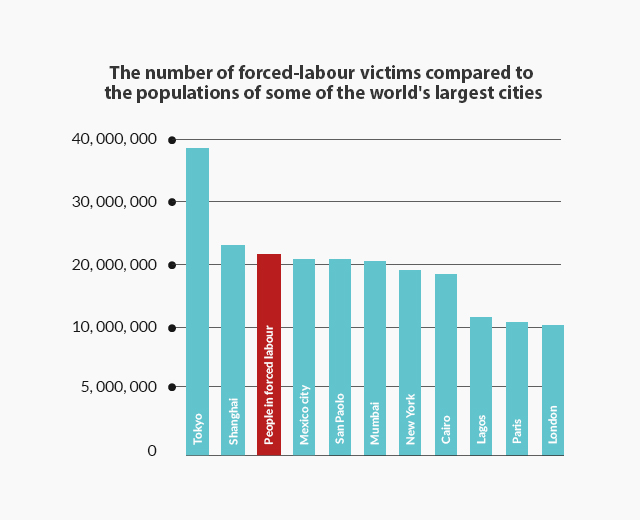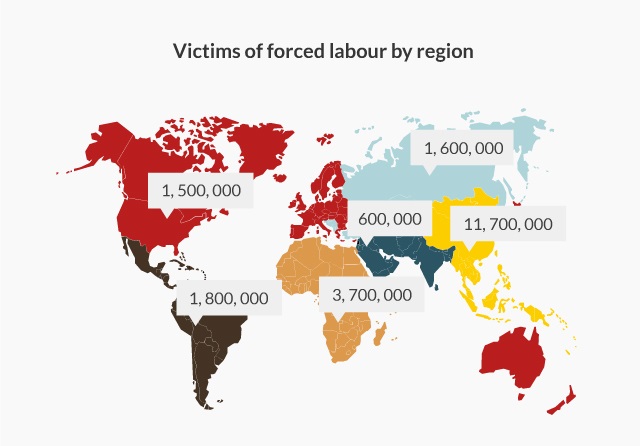ILO Calls for Support for Slavery Protocol
The International Labour Organization (ILO) has launched a new global campaign to end modern slavery in partnership with the International Organization of Employers (IOE) and the International Trade Union Confederation (ITUC).
The 50 for Freedom campaign aims to mobilize public support and influence in at least 50 countries to ratify the ILO’s Forced Labour Protocol by 2018.
There are more people in slavery today than at any other time in history. There are over 21 million children, women and men living in modern slavery, three out of every 1,000 people worldwide. If they all lived together in a single city, it would be one of the biggest cities in the world.

Most of the people in slavery work in industries such as agriculture, fishing, construction, manufacturing, mining, utilities and domestic work. Around one in five people are victims of sexual exploitation.

The protocol is a legally-binding treaty that requires governments to take new measures to tackle modern slavery in all its forms. It works on three main levels: protection, prevention and compensation. As an international treaty, countries must first ratify the Protocol before it enters into force.
The Protocol requires countries to ensure the release, recovery and rehabilitation of people living in modern slavery. Countries that ratify the Protocol will have to make sure that all workers in all sectors are protected by legislation. They’ll have to strengthen labour inspections and other services that protect workers from being exploited. They’ll also have to take extra steps to educate and inform people and communities about crimes like human trafficking.
Most countries of the world have already signed the Forced Labour Convention of 1930. But since then, new forms of modern slavery have emerged which are even more complex and difficult to tackle. The Protocol on Forced Labour complements the Convention by adding new elements, such as addressing root causes so that slavery can be eliminated once and for all. It also requires employers to exercise “due diligence” to avoid modern slavery in their business practices or supply chains.
Niger Leads the Way
 The West African nation of Niger made history earlier this year by becoming the first country to ratify the Forced Labour Protocol. Niger is one of few countries on Earth where it’s still possible to be born into slavery, but the country has a remarkable story to tell thanks to the leaders who have struggled against the practice since the nation gained independence in 1960.
The West African nation of Niger made history earlier this year by becoming the first country to ratify the Forced Labour Protocol. Niger is one of few countries on Earth where it’s still possible to be born into slavery, but the country has a remarkable story to tell thanks to the leaders who have struggled against the practice since the nation gained independence in 1960.
In 1961, the country ratified the ILO’s Forced Labour Convention. Then in 2002, it adopted national legislation to outlaw slavery, with strong penalties for anyone convicted of holding slaves, the first West African country to do so.
This year, it reaffirmed its commitment to ending modern slavery by becoming the first country in the world to ratify the Forced Labour Protocol.
“This is the logical next step to fighting this plague infecting [our] society,” said Niger Employment Minister Salissou Ada.
ILO Director-General Guy Ryder called it, “an extraordinary moment.”
“By being the first country to ratify the Protocol, Niger has ensured that it is well on the way to entering into force,” he said. “This gives hope to the millions of women, children and men still trapped in modern slavery.”

that matters most
Get the latest maritime news delivered to your inbox daily.
More information is available here.
The products and services herein described in this press release are not endorsed by The Maritime Executive.
